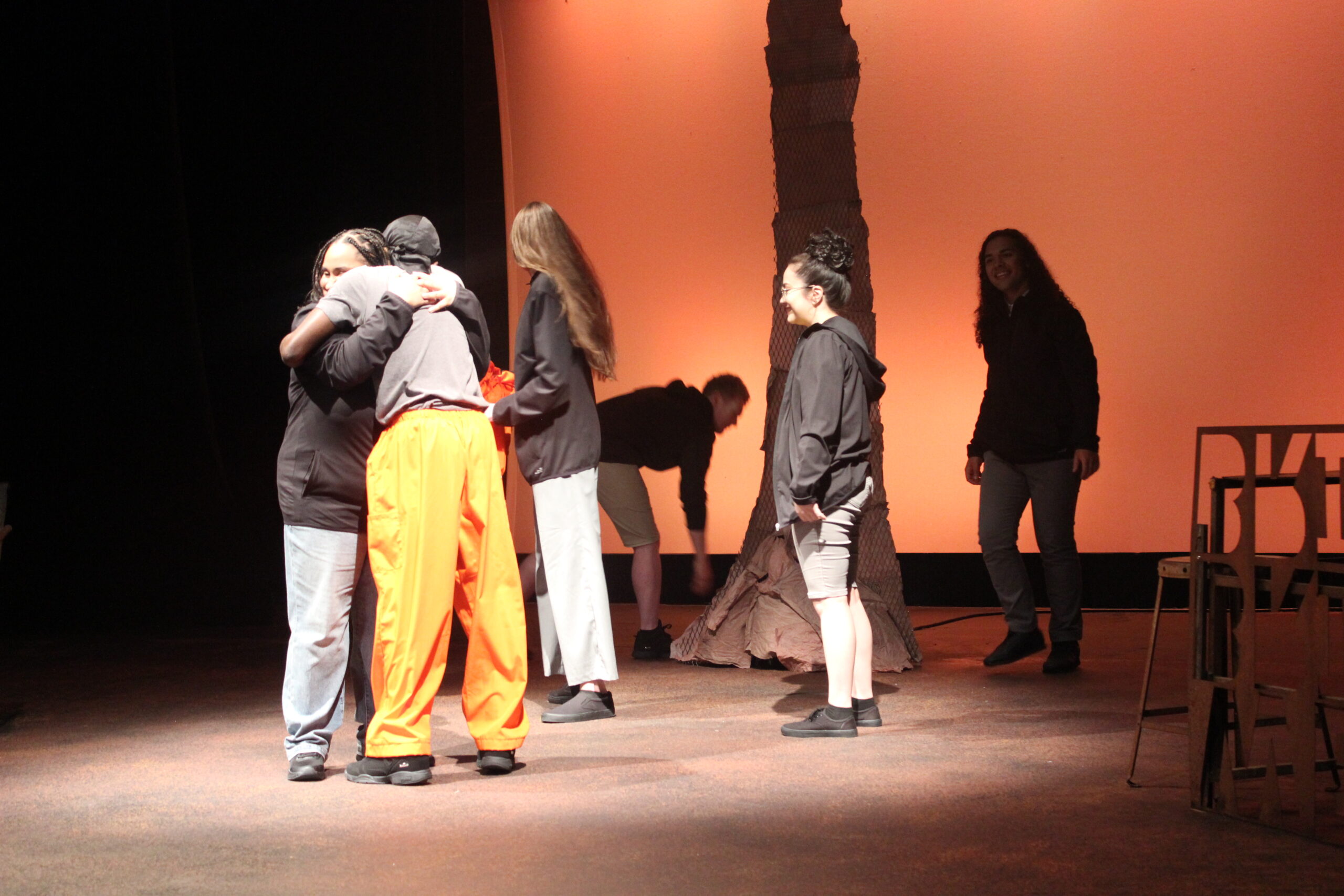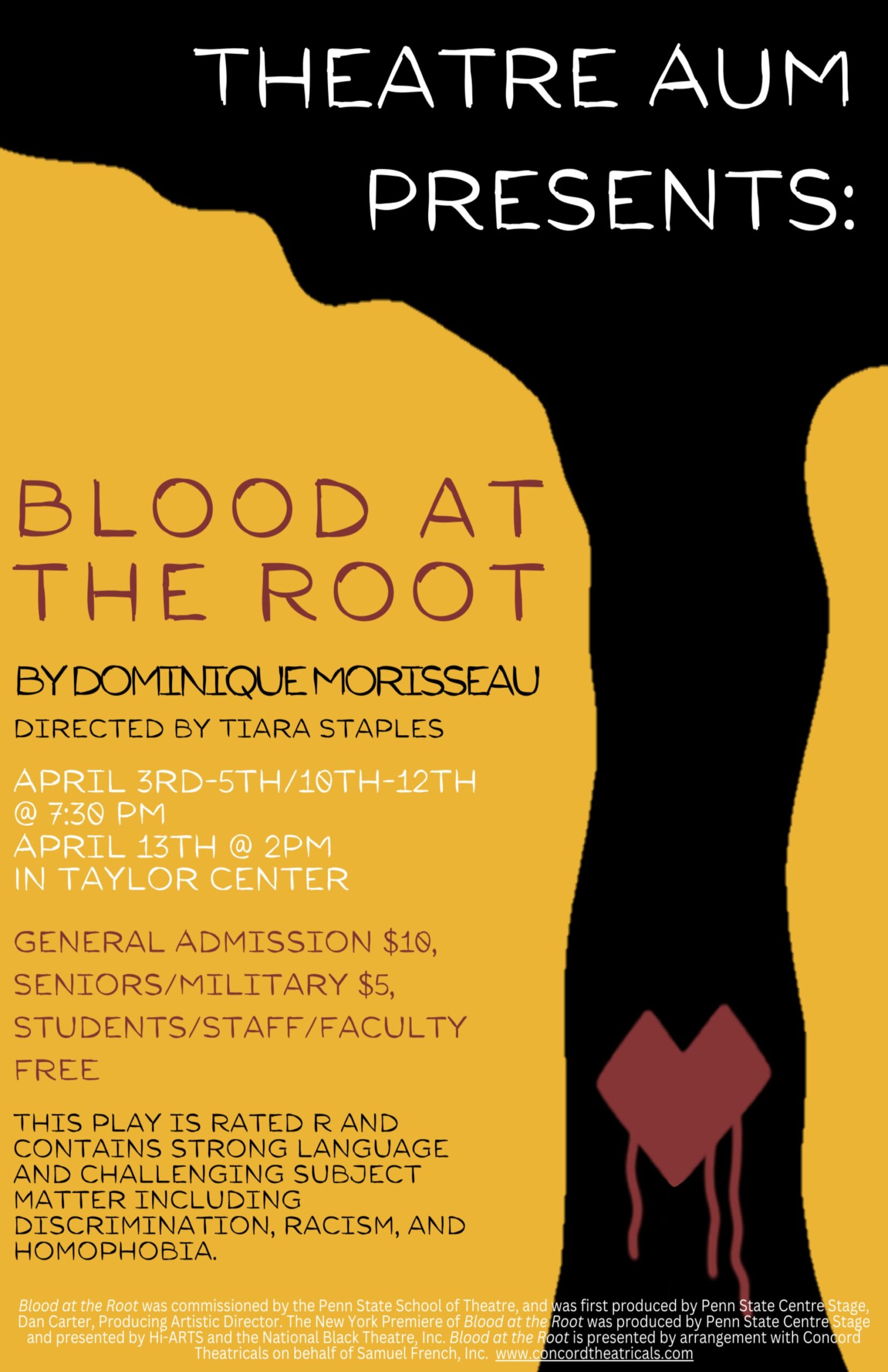BY: Brittany Vallely
If you told me a year ago that I would be working at a professional theatre in New York for the summer I would not have believed you. However, when I received a job offer from The Gateway Playhouse for a carpentry apprenticeship I knew I could not pass up the opportunity.
I applied for the job at the Southern Eastern Theatre Conference (SETC) last March, where professional theatre companies from all over the country look for technicians. Since I am theatre major and have worked on set construction while in college, I figured this would be a good idea to get more experience before I graduate.
Going to a job fair alone was intense because I had no idea what kind of questions I was going to be asked, and most of the people that were also applying looked more experienced. I did come across a couple of companies that were rude towards me. I even had a couple of break downs during my lunch break, but I knew I had to keep going. Just because I have never worked in summer stock before does not mean I am any less.
Michael Williams, one of my previous professor from Southern Union, was at the conference and gave me advice.
“Go visit all the companies that you do not have any interest first that way you can get a feel how the interview process works, and figure out how you want to market yourself,” Williams said.
I was very honest to everyone I spoke with and showed them my portfolio. I remember telling Gateway that all of my experience came from my academic work, but I was trying to further my knowledge.
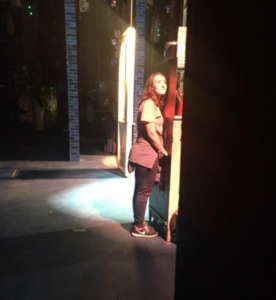
For a while, I had no idea why Gateway hired me because I felt novice compare to everyone else, but one day I asked my boss, Brian Loesch, what he saw in me.
“Potential,” he said.
The best part about my job was the people I was working with. I would have not survive without them, because when days were rough my co-workers kept me laughing. I was living with the people I work with every day, and we all eventually felt like a family. I had four roommates who were also either apprentices or interns, and the room was really small. The staff house was fun though because the actors also lived there. Everyone had to learn to share the bathrooms and kitchen, which got pretty crowded at times. Nevertheless, I will miss Painters night. Painters was a local restaurant where everyone at Gateway went to on Thursday nights. Those are the kinds of memories you do not forget with co-workers, because you never know when you will work with those people again. The theatre world is small so make as many friends as you can because in this field, it is all about who you know.
I got to work with some of the hardest workers I have ever met while at Gateway. We had to prepare ourselves for five shows over the summer such as “A Chorus Line,” “Nunsense,” “Memphis,” “Cabaret,” and “Flashdance.” I also got to be a part of run crew for “Memphis” and “Cabaret.” Run crew are people who work back stage and move set pieces. I had to hide behind a mini fridge during an entire scene because the fridge rolled out on stage and I was smallest person who could be hidden. Being on run crew gave me the opportunity to make connections and work with the actors. Two professional actors and Gateway’s casting director, Michael Baker, even offered to help me with my monologue so I would feel prepared for auditions when I go back to school. I will forever be grateful for their time and the lessons they taught me. I also got to work with Josh Canfield and Moeisha McGill, who have both appeared on Broadway, Mitzi Hamilton, one of the inspirations of “Val” from “A Chorus Line,” and Niki Lint, who is currently one of the production assistants for “King Kong” on Broadway. Just being in the same room as them was imitating because seeing how they worked was inspiring.
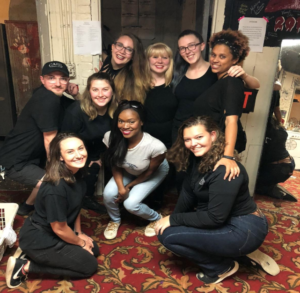
The hardest part of the job was the amount hours I was working and sometimes the type of work I had to do.
If work was going slow my boss would find something for us to do, which was always terrible. There was a day where I had to fix a rotten barn door and repaint it, clean out the gutters, and clean raccoon poop off of an old set that have been sitting in a trailer since 2009. The lesson here is to always find something to do to avoid the annoying busy work. If I didn’t have anything to do, I would start cleaning the shop or organize tools.
A normal day was 10:00 a.m. to 10:00 p.m., and a really good day was 9:00 a.m. to 7:00 p.m., but there were days where we worked past midnight. Professional theatres usually go on “dark” on Mondays, which means we have the day off, but when tech week came around technicians worked for two weeks straight. Tech week is the most brutal week ever, because all the technical elements such as costume, props, lighting, sound, and the set have to be ready for the stage so the actors can rehearse with them. After the show opens on Friday, everyone finally gets two days off on the following Monday and Tuesday. I was working so much that I only got to visit the city twice.
Unfortunately, I did not get credit for working overtime because we were paid by a small stipend each week, which was hard to survive on at times. Luckily, I did not have worry about affording gas, because I did not have a car in New York and was able to walk into town. I had to remember that this job was not about the money, it was about the experience and making connections.
When you are working 12 hour shifts, be prepared for to hear offensive comments. People will tell you that you are doing something wrong or harshly criticize your work. Sometimes you will find out you that you were right all along, but I always found it best to stay quiet. Just nod your head and say thank you. People will thank you back in long run for not arguing and will most likely want to work with you again.
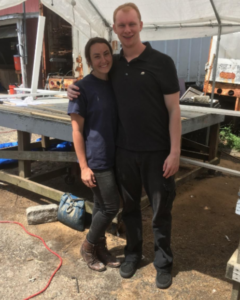
Even though I was a carpenter, I found out that I really enjoyed scenic painting. The scenic artist did not have any assistants, and would go to the carpenters for help. Eventually she kept requesting me and would take the time to teach me. Such as mixing colors of paint, creating texture, and reading elevations. One day, she gave me the task to paint a detailed sign and I remember asking her if she sure she wanted me for the job.
“Yeah, I trust you,” she said.
Those words meant everything to me. There was also a time where the scenic artist was out for the day because she had a doctor’s appointment. My technical director than put me in charge of paint, and I got to work the assistant set designer. During an apprenticeship, learn about all the different areas because the more skills you have the more hirable you are.
Overall, the amount of knowledge I gained was more than I could ever imagine. I learned how to use different power tools, how to cut metal, read drawings, and cross loads.
I would not trade my experience for anything because now I know the stage is where I want to be. The professional world can be scary, but people have to learn to face their fears and take a chance. My advice to everyone is to start applying for internships and apprenticeships as soon as possible. Ask your professors for assistance or start researching for one in your field. Do not let opportunities pass you by while in college, the adventures could open many doors.


